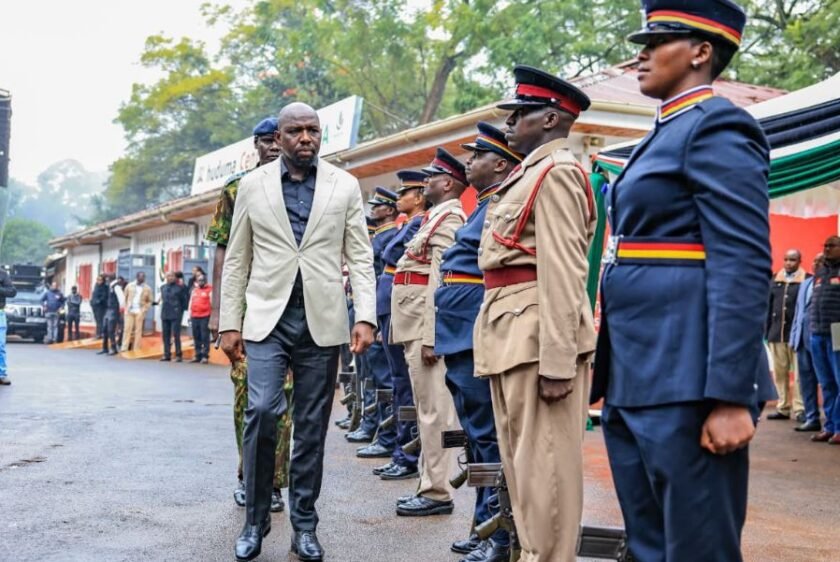 Interior Cabinet Secretary Kipchumba Murkomen has explained why police officers often ask members of the public to provide fuel when responding to cases, admitting that the government does not allocate enough fuel for police vehicles each month.
Interior Cabinet Secretary Kipchumba Murkomen has explained why police officers often ask members of the public to provide fuel when responding to cases, admitting that the government does not allocate enough fuel for police vehicles each month.
Speaking at the Jukwaa La Usalama forum in Homa Bay town on Tuesday, Murkomen said such requests should not be mistaken for corruption. He noted that the government allocates 450 litres of fuel per police vehicle monthly, a figure he admitted falls far short of the operational needs in most stations.
During the forum, the Officer Commanding Station (OCS) in Kendubay disclosed that the current allocation of 15 litres per day per vehicle runs out by the 18th of every month, leaving officers stranded and forced to seek assistance from the public.
“To be honest, sir, in my station at Kendubay, by the 18th of every month, I have already exhausted the fuel allocation. Sometimes we have to ferry prisoners to court up to five times a week, and this quickly drains the supplies,” the OCS said.
Murkomen acknowledged the frustrations and noted that fuel shortages have fueled public misconceptions about police conduct.
“When our police officers tell wananchi that ‘gari haina mafuta, hatuwezi kuja,’ people think the officer is asking for a bribe, but that is not true,” Murkomen explained.
The CS added that the problem is worse in remote regions where officers must travel long distances just to collect fuel.
“For example, when a police officer in Kibish travels all the way to Kitale to collect fuel, by the time he returns, the allocation cannot last beyond 10 days. The vehicle then stays grounded for the rest of the month,” he said.
To address the challenge, Murkomen announced that the government is reviewing the current arrangement and plans to increase the monthly allocation from 450 litres to 650 litres per vehicle to improve efficiency in police operations.
He further said the government will decentralize fuel supply points to reduce costly trips. Murkomen cited Marsabit and Moyale as examples of regions that will soon access fuel locally instead of officers traveling to far-off towns like Nanyuki.
“We have said two things. One, we are working on increasing the allocation to 650 liters. But number two, for counties that are far and expensive, fuel should be delivered closer so that operational work is not wasted on long trips to collect supplies,” he explained.
The adjustments will be rolled out under the ongoing police vehicle leasing program.





